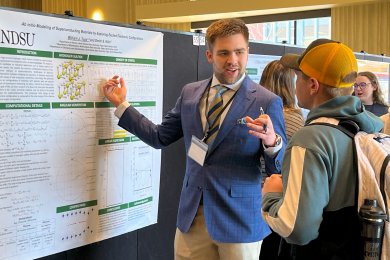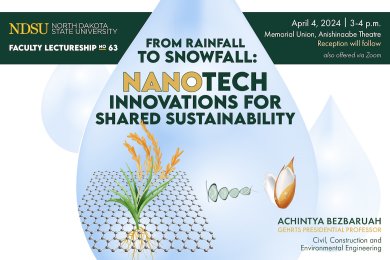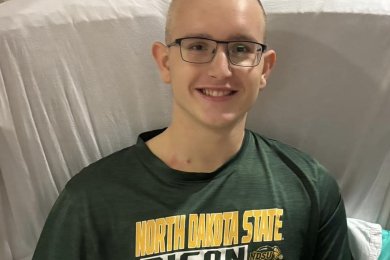
One of the benefits of research is filling in gaps in knowledge. Two NDSU engineering researchers, Chad Ulven, researcher and professor in mechanical engineering, and his graduate advisee, MD Zahirul Islam, are assessing the strengths and weaknesses of a flax-fiber reinforced biocomposites.
Biocomposites are materials created from combining a natural fiber, in this case flax, with a matrix or resin. In traditional composites, non-degradable fiberglass, carbon fibers, or a petrochemical base is paired with the resin.
The work being done through the Center for Sustainable Materials Science (CSMS), a North Dakota Established Program to Stimulate Competitive Research (ND EPSCoR) research center, is developing a better understanding of biocomposites and their potential application as replacements for traditional composites.
Biocomposites are used in a variety of industries, including automotive, aerospace, sports, and leisure, because of their environmentally friendly, biodegradable properties and lower cost.
According to Ulven, researchers have discovered how to effectively and efficiently use biocomposites in a variety of applications, but the long-term durability has not been widely researched. That’s where Ulven and Islam are seeking more information.
In the lab, Islam is observing when composites are stressed with varying loads to assess the difference in fatigue response. Islam noted that industry needs to know the life cycle of a biocomposite, especially if they are seeking to replace traditional materials.
“Biocomposites have less weight and can be very strong as well as environmentally friendly, but we need to know how they will respond under stress conditions,” Islam said.
He explained that traditional metals, carbons and glass all have well-defined properties, but that the information is lacking with some of the newer biocomposite materials.
Ulven noted the characterization of the fatigue behavior of flax-reinforced composites fills a current literature and knowledge gap. This current research also may help expand the market for biocomposites by providing a better understanding of the long-term durability characteristics.
The mission of ND EPSCoR is to increase the competitiveness of North Dakota for merit-based grants and contracts in support of research in the disciplines of science, technology, engineering and mathematics.
Funding is provided by the State of North Dakota and NSF EPSCoR Research Infrastructure Improvement Program Track-1 (RII Track-1) Cooperative Agreement Award OIA-1355466.
As a student-focused, land-grant, research university, we serve our citizens.




